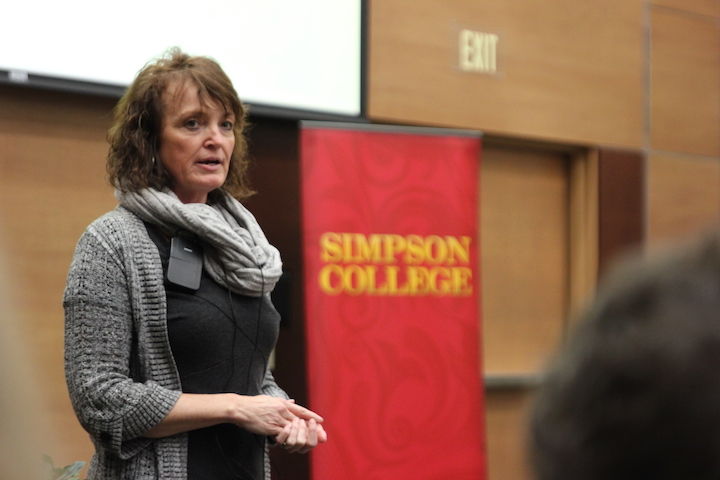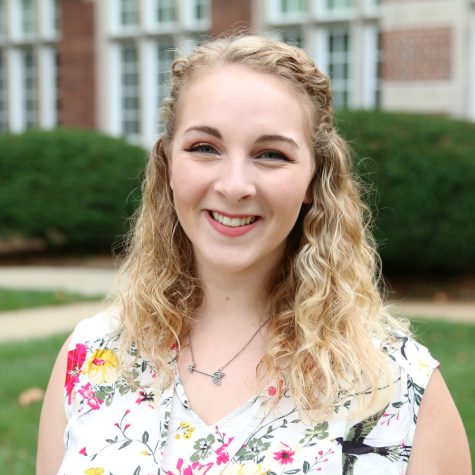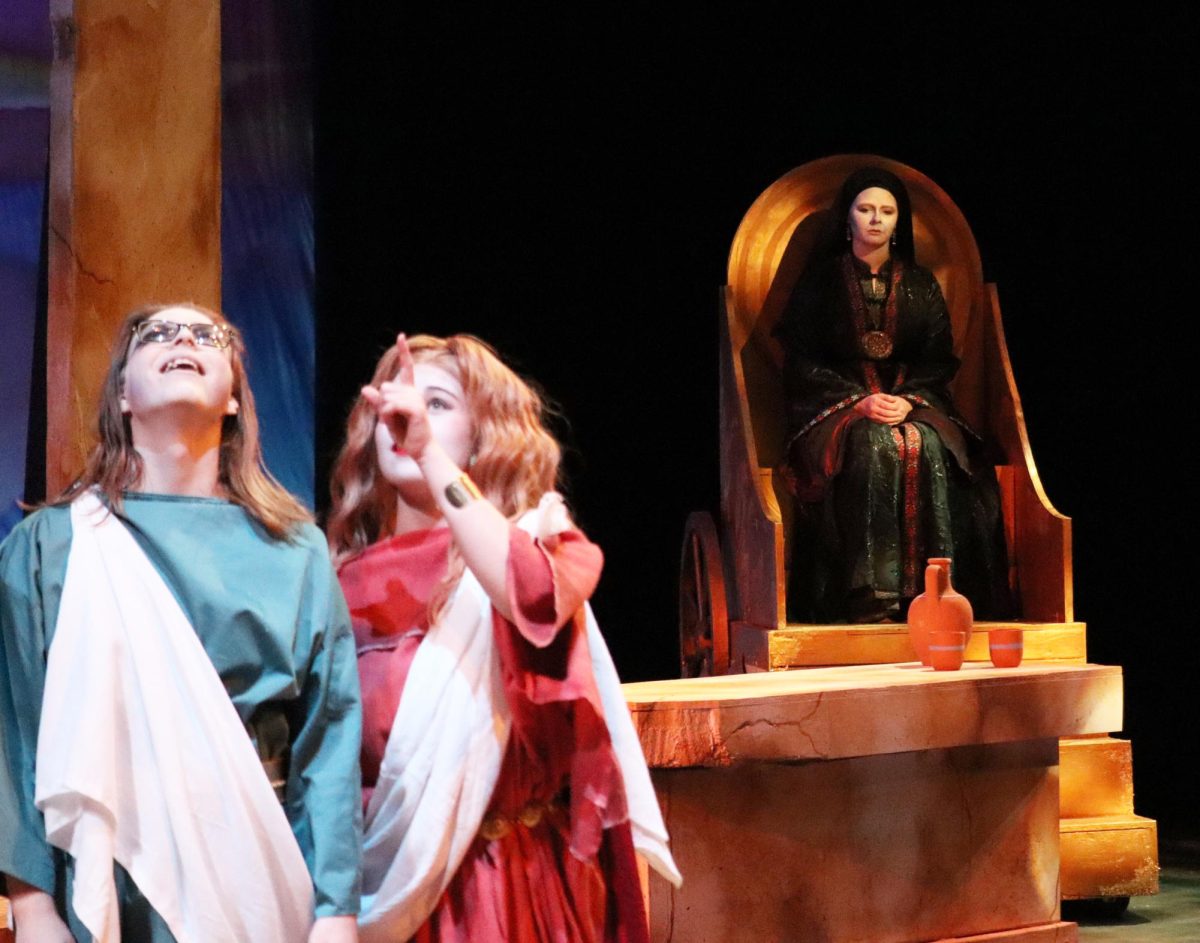Forum speaker teaches ways to increase hope in education and life
February 9, 2015
Katherine Rowell, the Director of the Center for Teaching and Learning at Sinclair Community College in Dayton, Ohio, spoke to Simpson College students and faculty about hopeful teaching and learning on Wednesday, Feb. 4.
Hopeful teaching and learning may sound like an idealistic term, but Rowell described what it really entails.
First off, people need to realize that hope and optimism are not the same things, contrary to popular belief. Optimism, Rowell explained, is the belief that everything is going to work out fine.
“Hope is the recognition that things don’t always turn out the way you want them to; that no matter what, you’ll be able to deal with it and move on,” she said.
To illustrate this example, Rowell described a student who is determined to attend medical school but has a low GPA. Because she didn’t have a plan to improve her academic standing, she called this student optimistic rather than hopeful.
“Hope is not an emotion,” she said. “Hopefulness can be taught. It’s not something you’re born with.”
Hope comes in three parts: the ability to set goals, the ability to set pathways to reach those goals and motivation to achieve those goals. Teaching students to be hopeful simply means talking to them about their goals and knowing several ways to achieve them.
“A lot of college students are goal-oriented, but they haven’t imagined ways to achieve those goals,” Rowell said.
Not only is it important for teachers to know their students’ academic goals, but studies have shown that it’s beneficial for them to know their students’ personal goals as well. More often, it’s those personal goals that motivate people.
Rowell continually stressed the importance of setting goals. Everyone should have a plan, but not just one plan. You should set multiple back-up plans because few things in life ever work out exactly how you want them to the first time.
For students, academic hope is an important factor. It predicts overall well-being. The higher you score on the academic hope scale, the more likely you are to succeed in college.
“Students with high hope are more likely to graduate and more likely to persist through college,” Rowell said.
Success is a complex concept, though. It can mean different things for different people. Being successful is not just about being a good student. Success is influenced by the ability to overcome obstacles, your level of hope and the amount of empathy the school shows toward its students.
“Teachers forget what it’s like to be a student,” Rowell said. “The best teachers are empathetic.”
Empathy doesn’t mean being an easy teacher. Effective empathetic teaching sets high goals for students, believing they have what it takes to achieve them.
“Students often have goals,” Rowell said. “But it’s the pathway part that we don’t think about. We don’t think about what happens if there’s an obstacle. A lot of us have not had to face a lot of obstacles to get where we are today.”
People who are more hopeful are better at handling stress when hardship arises, making them more successful.
Teachers have to role model hopefulness for students and admit they’ve overcome obstacles. Improving hopefulness in teaching can be as simple as changing the way they speak, both in word choice and in tone.
“The number one reason why students succeed in college is relationships,” Rowell said.
By attending a small school, Simpson students already have the upper hand. Our smaller class sizes mean our professors know their students and know them well.
So what can you do now to be more hopeful and more successful in the future?
“Set little goals to start off with. Set goals, both personally and professionally. Seek out role models.” Rowell advises. “You came here because you can build relationships with people; take time to do it.”







